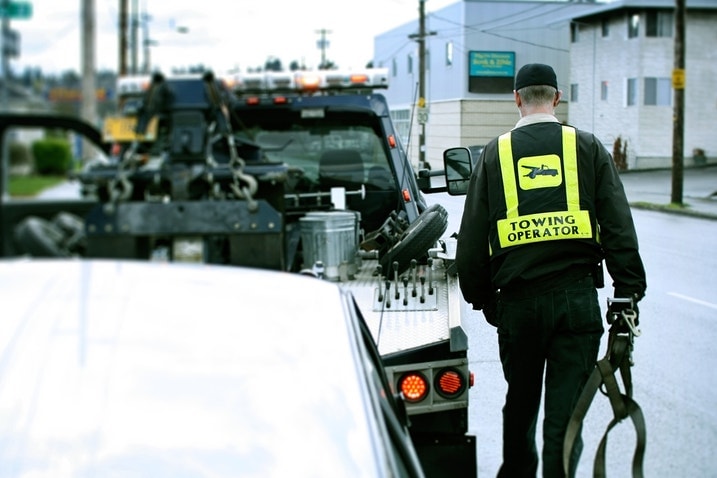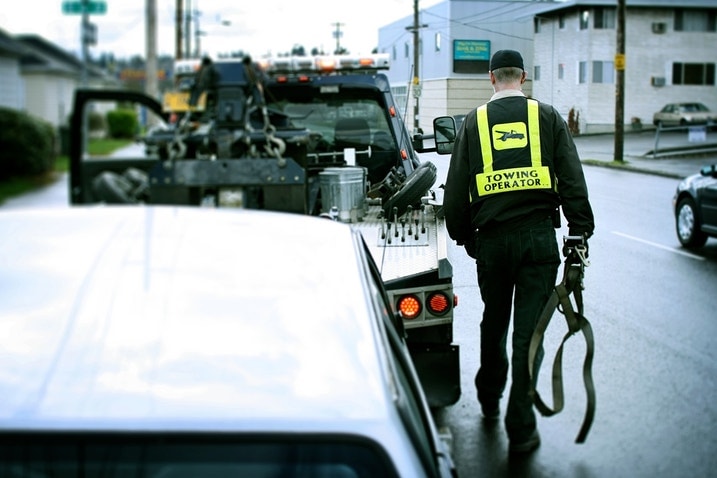How to avoid a car repossession
The best way to avoid the repo man is to stop the repossession process before it starts. According to the Consumer Financial Protection Bureau (CFPB), the first step you should take to avoid a car repossession is to contact your lender or whatever service you use to make your car payments. There may be options available to you to help you make arrangements to avoid the repo man. Affordable payment plans, changes to your payment due date, or a temporary pause on payments are all options that your lender may offer so you can avoid repossession.
No matter what you do, however, the CFPB recommends getting your agreement in writing. This will help avoid miscommunication and could help you if, at a later time, you find that your credit rating has been damaged. Repossessions are costly and can stay on your credit report for up to seven years.
What happens when your car gets repossessed?
Because an automobile is actually owned by the lending institution that you secured your loan through until that loan is paid off, the lender has a legal right to take the car back if your loan is in default or, in other words, you have fallen behind on your payments.
Depending on your individual situation and where you live, the lender may not be required to go to court or contact you before repossessing your car. If you're not sure if or when your car could be repossessed by the lender, be sure to check all of the documentation that you signed when you took the loan out.
Once a lender has determined that a car repossession is necessary, it will generally outsource the actual repossession to a professional. Repo men (or, more properly, repossession agents) will use whatever methods they have at their disposal to locate the car they are repossessing. Checking last-known addresses, online databases, or even old-fashioned detective work in the form of door knocking or phone calling are all tools the repo agent may employ. They might even use informants — an estranged spouse looking to get even, for example — who can tell them where to find a car.
Once the repo man locates a car, he will usually wait until it is left unattended and use a tow truck to repossess it. In some cases, repo men have specially modified tow trucks that can yank a car away in a minute or two.
From there, the car goes to an impound lot, where it may be held for up to 30 days to give the owner a chance to "make the loan whole" by bringing all back payments up to date (including the repossession fee) or by paying off the loan balance in full. We’ll discuss these options in further detail later on in this article.
If the owner doesn't settle the account in time, the lender typically sells the car at auction, where impounded cars are put up for sale, deducting the selling price and fees from the amount owed. The fees include the cost of the repossession, auction, interest and the amount owed on the loan. Odds are high that even after your car is sold at auction, you'll still owe money on it to the bank.
Financial assistance for car repossession
Repossessing a car is a hassle for both the bank and the person who has fallen behind on payments. If you realize you're in a tough financial spot and that you won’t be able to make your car payments on time, it's a good idea to reach out to your lender to explain the situation. As we mentioned earlier, some temporary solutions you may be offered include the option to make interest-only payments for a set period of time or a restructuring of your loan.
Related article: What to Do If You Can't Make Your Car Payment
Another option to avoid a repo car situation is to refinance your current auto loan. It may not always be a good idea to refinance a car loan, however. While it's possible your monthly payments may go down and become more affordable, you may end up paying a lot more in interest by the time you've finally paid off the loan, but it could be worth investigating if you find yourself locked into a loan with particularly unfavorable terms that could lead to repossession.
You may be able to sell your car before it gets repossessed
It pays to keep tabs on your car's value. In a rare turn of events, some people who have had their cars repossessed might actually have received a check from the bank had they known the car's value.
For example, let's say your car was repossessed when you were in the fourth year of a five-year loan. If you'd made a substantial down payment, you might have equity in the vehicle and not know it. After the car was repossessed and sold at auction, the amount it brought could have been more than what you owed on the loan, even after auction and repossession fees were deducted. In short, if you'd been aware of the loan balance, you could have avoided the repossession by selling the car, preventing damage to your credit score.
Helpful tool: How much is my car worth? Instant used car value.
How long does it take to repossess a car?
While laws and individual contracts vary, in some cases, a lender could potentially repossess your car after a single missed payment. It's more likely, though, that you'll have to miss multiple payments in a row before a lender will consider repossession. A car repo may also be more likely if you have a history of missing payments. For more information on when a lender could repossess your car, check out How Many Car Payments Can You Miss Before Repo?
How soon can you get your repossessed car back?
How soon you can get your repossessed car back depends on a number of factors and can vary from state to state. Some states allow you to “cure” or reinstate your loan even after a car has been repossessed. Reinstatement of your loan basically restores your loan to its original status and requires you to pay a lump sum that covers all of your past-due payments, plus any fees incurred in the repossession process and any late charges that may apply.
While many states require your lender to send you a notice, often within 15 days of the vehicle’s repossession, you don’t have to wait for them to contact you. A better option is to contact your lender yourself as quickly as possible if you are hoping to reinstate your loan. Be aware that there will likely be a very limited time for you to negotiate with your lender before it’s too late and you're on the lookout for impounded cars for sale near you.
Are there any car repossession loopholes you should know about?
Instead of trying to rely on potential car repossession loopholes or trying to find out how to park your car to avoid repo, the smartest course of action is to do your best to avoid car repossession in the first place. First and foremost, reach out to your lender and find out if they will work with you on your loan repayment terms.
If you can't avoid a car repossession, you still have rights to keep in mind. If you had any belongings in a car that has been repossessed, you have the right to retrieve that property. According to the CFPB, you have the right to be notified before your vehicle is sold at a public auction with impounded cars for sale, and it's within your rights to bid on the vehicle in an attempt to buy it back.
If your repossessed car is sold for less than what you owed on the loan, you may be responsible for the difference. The lender may hire a debt collector to collect the money you still owe. On the other hand, if your repossessed vehicle sells for more than what you owed, you may be entitled to the surplus. If you're unsure of your rights, consider consulting with an attorney.
Whatever you do, don't try to make the car repossession process harder on the repo man or yourself. There's no point in hiding your car or blocking it in with other vehicles in an attempt to postpone the inevitable. As one repo man said, "We use every trick in the book to get your car. We watch the house and follow you if you take the car anywhere. We'll grab it when you park, even if it is for a few minutes. I took one from a gas station when the owner went to the window to get their change.
"The harder you make it for the repo man, the more he is going to charge the bank," he said. "The bank will add this to the amount you owe, and you will eventually have to pay it."
It’s also a very bad idea to try to exact revenge on your lender by vandalizing a soon-to-be-towed car. Any damage you do to a car that’s going to be repossessed will only lower the value of the car at auction, increasing what's owed on the car and putting you in an even worse financial situation than before.

